Study maths in Netherlands - 3 institutions
-
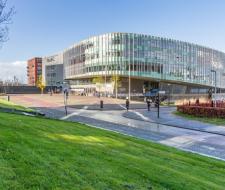 INTERNSHIPS AT NIKE, GOOGLE AND MICROSOFT
INTERNSHIPS AT NIKE, GOOGLE AND MICROSOFT NetherlandsAmsterdamCurrently watching: 9from 8471.00 € / yearApply with documents
NetherlandsAmsterdamCurrently watching: 9from 8471.00 € / yearApply with documents -
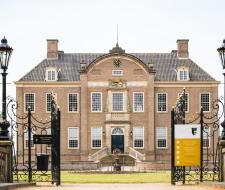 Accredited by Council of International Schools (CIS)
Accredited by Council of International Schools (CIS) NetherlandsEnschedeCurrently watching: 4from 15000.00 € / yearApply with documents
NetherlandsEnschedeCurrently watching: 4from 15000.00 € / yearApply with documents -
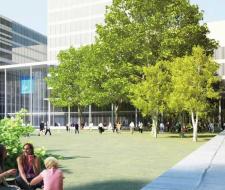
 NetherlandsAmsterdamCurrently watching: 3Apply with documents
NetherlandsAmsterdamCurrently watching: 3Apply with documents
-
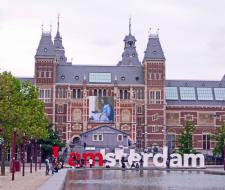 #15 in the Europe and #55 in the world
#15 in the Europe and #55 in the world NetherlandsAmsterdamCurrently watching: 6from 9850.00 € / yearApply with documents
NetherlandsAmsterdamCurrently watching: 6from 9850.00 € / yearApply with documents -
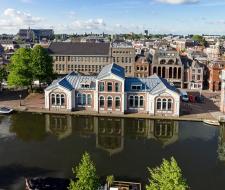 is in the Top 10 Countries to Study Abroad 2023
is in the Top 10 Countries to Study Abroad 2023 NetherlandsHagueCurrently watching: 6from 8000.00 € / semesterApply with documents
NetherlandsHagueCurrently watching: 6from 8000.00 € / semesterApply with documents -
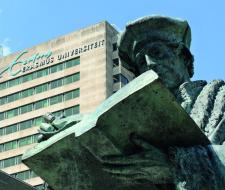 #4 in the Netherlands, #72 Worldwide
#4 in the Netherlands, #72 Worldwide NetherlandsRotterdamCurrently watching: 3from 9300.00 € / yearApply with documents
NetherlandsRotterdamCurrently watching: 3from 9300.00 € / yearApply with documents -

 NetherlandsAmsterdamCurrently watching: 6from 1475.00 € / weekApply with documents
NetherlandsAmsterdamCurrently watching: 6from 1475.00 € / weekApply with documents -
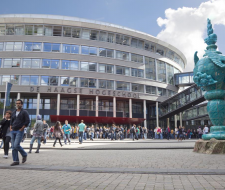 ranked 21st in the Netherlands
ranked 21st in the Netherlands NetherlandsHagueCurrently watching: 6from 8634.00 € / yearApply with documents
NetherlandsHagueCurrently watching: 6from 8634.00 € / yearApply with documents -
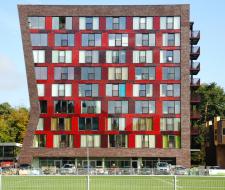 from 9250.00 € / yearApply with documents
from 9250.00 € / yearApply with documents -
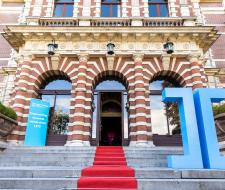 ranking is #39 in the Best Global Universities list
ranking is #39 in the Best Global Universities list NetherlandsAmsterdamCurrently watching: 6from 12500.00 € / yearApply with documents
NetherlandsAmsterdamCurrently watching: 6from 12500.00 € / yearApply with documents -
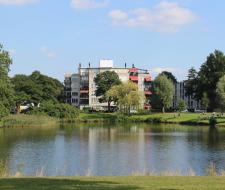 Programs are accredited by NVAO and FIBAA
Programs are accredited by NVAO and FIBAA NetherlandsApeldoornCurrently watching: 3from 4000.00 € / 6 monthsApply with documents
NetherlandsApeldoornCurrently watching: 3from 4000.00 € / 6 monthsApply with documents
Alternative destinations
Education information
The Netherlands has established a system of rules with regard to entities that come into force even before a child enters school. So, when the baby turns 3.5 years old, parents apply for 1 or more educational institutions in their area. After choosing several possible schools, future students and their parents go to an open day ("school fair"), where they get acquainted with the program of each school. After that, they decide on one of them. From the age of 4, preferably, and from the age of 5, the child begins to attend school without fail.
In maths schools in Netherlands, there are no homework assignments: until the age of 12, children are not asked anything at home. This rule has been in effect here for more than 50 years. So, children in Netherlands go to school from the age of 4 or 5 (it is compulsory by the law). The specific feature is that the child can go to school right the day after his birthday. Here he celebrated, and the next day he can pack a backpack and go to school, no matter when it happened, even at the end of the school year.
Maths in private schools in Netherlands – specifics of studying
Starting from 5 to 12 years studying in primary school lasts. Children move from group to group, there are 8 groups in total. Next, the classes begin. The school week is five days. Lessons start at 8:15, and end in different ways at each school: for some, three days a week end at 15:00, and two days at 12:00, for others, four days may end at 15:00, and one day is an additional day off.
At the age of 12, the children are waiting for a control test for the transition from elementary school to secondary school. During testing, it is not so much the result as the process that is evaluated: how the student understands the tasks, is guided by actions and rules. To this is added the expertise of the teacher, which in total affects the direction of further education. The prospect of one of the 3 directions of maths programme of the study in Netherlands opens up to the students:
- VMBO is a 4–year professional studying focused on practical knowledge. Schoolchildren finish their studies at the age of 16.
- HAVO is a 5–year secondary course that prepares students for higher professional education at universities of applied sciences, maths, where they can obtain a bachelor's degree. The guys graduate from HAVO at the age of 17.
- VWO is a 6–year academic education with an emphasis on theoretical knowledge, which prepares students for a bachelor's degree at the university. The students graduate at the age of 18.
Study GCSE maths in Netherlands – specifics of studying
GCSE (General Certificate of Secondary Education) is a secondary school program for children aged from 14 to 16. Duration of studying is 2 years (10th and 11th grade). At the end of the second year, children take an exam in each subject. The choice of a school for further study in high school depends on the results of final exams.
The curriculum consists of compulsory subjects and elective subjects. Their list may vary from school to school in Netherlands. The basic courses include: English, Literature, Mathematics, Biology, Chemistry, physics, history, geography and one foreign language. In addition to them, the student chooses 3-4 subjects. This can be, for example, astronomy, art, programming, business disciplines, statistics or psychology.
GCSE Maths is the main subject in all schools in Netherlands. Mathematics is a fundamental science, the study of mathematics allows the students to develop mental abilities, analytical, critical, abstract thinking, the ability to predict and generalize, trains memory and develops quick thinking.
Study A-level maths in schools in Netherlands
A-level is a British exam of Sixth Form stage. The program is designed for students aged 16-18, who want to continue studying at the university. This stage is not considered mandatory, general secondary education is a GCSE diploma in Netherlands (14-16 years old). A-level is already a full secondary education. Usually the course is designed for 2 years, sometimes they give you the opportunity to complete a year (accelerated course), but you need to try very hard and prove that you will pull the intensity.
A-level Math is designed for 90 minutes and is divided into 4 sections:
- Core mathematics includes: equations, simplifications, logarithms, derivatives, etc.;
- Futher pure mathematics is already "pure" mathematics, closer to the highest: complex numbers, series, matrices and other in—depth concepts;
- Statistics is probability theory and mathematical statistics;
- Decision mathematics — "mathematics of decision making", a symbiosis of discrete mathematics and solving problems on graphs.



